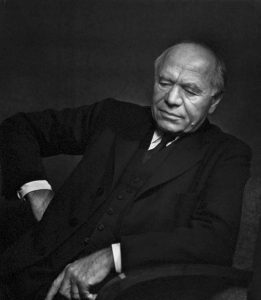
Finest Hour 168
Letters

Winston Churchill, Parliament Square, London © Sue Lowry & Magellan PR
August 2, 2015
Finest Hour 168, Spring 2015
Page 05
Email: [email protected]Tweet: @ChurchillCentre
Quotation of the Season
“In all our long history we have never seen a greater day than this.”
—WSC, Victory in Europe Day, 8 May 1945

2025 International Churchill Conference
Tonypandy Redux
LONDON—Jeremy Paxman was wrong entirely, when he alleged in his BBC documentary of 30 January 2015 Churchill: The Nation’s Farewell [reviewed FH 167] that in 1911 Winston Churchill sent troops in to attack the miners at Tonypandy during a strike in Wales.
Randolph Churchill documented very clearly in the second volume of the Official Biography of his father that it was Churchill as Home Secretary who intervened to send police instead of troops to help bring order. [See Leading Churchill Myths in FH 140.] It is quite clear that at no time did Churchill authorize military intervention and there was no “shooting of striking miners” at Tonypandy.
—Celia Lee
Victory Through Education
QUISPAMSIS, N.B.—My name is Riley Mitchell, and I am 10 years old. In my grade 4 English class, each person had to do a project which could be done on anything or any person. I love history and learning about the World Wars so after some research I picked Winston Churchill.
I chose Winston Churchill because he saved the world. His AMAZING speeches inspired his country and other countries to stand and fight against the Nazis. In my opinion he was the most amazing guy to live! And I bet he is doing just fine in heaven.
While preparing for my presentation I went to many different web sites and watched many different videos and I found yours to be the best. Thank you for all your juicy information. You are doing a terrific job of keeping the story of Winston Churchill alive. It was cool learning about a real world SUPER HERO!
—Riley Mitchell
Few Indeed
IPSWICH—My father was a well-known Battle of Britain pilot. He worshipped Churchill, as do I. Of all the Prime Minister’s great speeches the one that touches me most is the tribute to the RAF pilots, “Never in the field of human conflict….”
Recently, a Radio 4 narrator said that this was a formula of words Churchill had used for years and that his private secretary, Eddie Marsh, kept a phrasebook of his master’s utterances. This is not only somewhat prosaic but (if true) takes the shine off what I had always considered to be a unique, albeit not extemporised, speech. Can you shed any light on this?
—Stephen Llewellyn
The Churchill Centre’s response:
The famous line did in fact have a long gestation, as indeed did a number of Churchill’s other striking phrases. We do not think, though, that this in any way diminishes the tribute that Churchill was paying to your father and the other pilots. The fact that he polished many phrases in advance before synchronizing them with key moments in history illustrates Churchill’s dedication to—and the seriousness of—his oratory, which he knew to be his most potent weapon as a national leader.
Mr. Llewellyn replies:
The more I have thought about this issue and the points you make, the more I realise that OF COURSE he would use a particularly elegant phrase a number of times, honing it, polishing it— and just waiting for the perfect moment to utilise it to its greatest effect. Good heavens, is not musical history filled with composers doing the very same thing? Rossini used the same aria in two different operas, sung by a tenor in one and a soprano in the other (with different words of course). Brahms, Beethoven, Bach—they all cannibalised their own material, not to mention stealing other people’s!
So my original whine was, upon reflection, completely misplaced. In my defence all I can say is that never in the field of human writing….
Errata
In his haste to get out the special issue of Finest Hour 167, the editor inadvertently omitted to update the issue number at the bottom of pages 3–21. More egregiously, he left the speech by British Prime Minister David Cameron out of the Table of Contents. At least he remembered to include the speech itself on page six. Accordingly, the editor has sent himself to Coventry, calling at all stations, including Leighton Buzzard, Bletchley, Milton Keynes, Long Buckby, and Rugby.
Subscribe
WANT MORE?
Get the Churchill Bulletin delivered to your inbox once a month.




